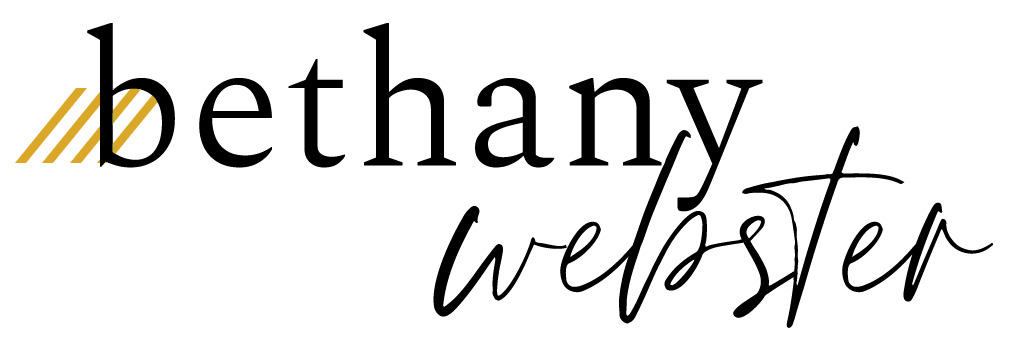Emerging from Patriarchy: Some Relationships Won’t Survive the Real You

As women living through this transformational time, we’re seeing patriarchal institutions crumble all around us — in governments, media, communities, and organizations. The devastating scope of patriarchal dysfunction is on full display across the globe and we are left to grapple with the ways we’ve been compliant with it, how we’ve been victimized by it, and the urgency to move beyond it.
On a personal level, as women, many of us are in the process of emerging from the core patriarchal mandates that tell women to be small and to be quiet; to accept our role as the dominated, inferior sex. One of the central ways this shows up in our everyday lives is so commonplace and familiar that we take it for granted, and yet within it lies an untapped power to upend patriarchy. It’s how we show up in relationships.
Personal relationships are the ground on which the revolution really takes place.
As women we are conditioned to believe that our value lies in making relationships work; that the emotional realm is our domain and if relationships fail, it’s always our fault. Even when we know it is best to let go of a relationship, there may remain a subtle residue of self-blame that continues to plague us under the surface, long after the relationship dissolves. Cultural messages about gender reward us for being the “emotional” sex and valorize those among us who attempt to rehabilitate immature men and tolerate unending disrespect from friends, family, and colleagues. We can see this in the subtext of countless sitcoms and romantic narratives.
Patriarchy tells women to be peacekeepers in their relationships: “You have to be OK with everything… and make everything OK.”
While confining, this “peacekeeper role” in relationships has given many women a sense of power and a way to feel safe in an unsafe world. You may have been praised for being steady, consistent, stable and a reliable force in your relationships. Yet those functions are often code for some measure of “a doormat, a dumping ground, and presenting no threat to the status quo.”
White women who benefit from unearned, skin-based privileges are in a unique social position: they are oppressed due to their sex but privileged because of their skin color. In short, white women hold the position of being both oppressed and also have the ability to oppress. This can show up as leaning on our whiteness to remain in denial of how being white does not protect us from misogyny. This can translate into us white women not standing up or speaking out on behalf of non-white and other marginalized people, and sometimes actively harming them as a way to feel powerful. (Click the bolded text in this paragraph to read some articles on this issue.)The female “peacekeeper” role actually prevents real peace.
It’s important to see when “peace” is really code for silence about uncomfortable truths that are being cloaked to benefit some while harming others. Peace, or absence of conflict can’t be our highest value anymore. The highest value is truth. And truth always involves some degree of turbulence as we continue to evolve.
“Authenticity” has become a cliché buzzword in the wider “female empowerment industrial complex” that is present-day coaching and personal growth. But the authenticity that we are craving is much more radical and subversive to the status quo than we realize. It requires an unwavering fidelity to that core of inner truth that is covered up through our experiences of growing up female and a commitment to reclaiming and embodying our truths even when we’re met with external disapproval and rejection.
One of the things I hear the most from women is a fear that their true authenticity will cause injury to their relationships, this includes relationships with romantic partners, friends, co-workers, and family members.
Women ask themselves…
- “Can my marriage survive my real self?”
- “Will my honesty crush my partner?”
- “If I become who I want to be, will I lose my close friends?”
- “If I come out as my real self, will my family disown me?”
- “Will I be able to remain in my job if I can no longer tolerate certain things?”
The fear of loss of relationships is a key way in which patriarchy holds us back. We keep our voices down, we exaggerate the truth, we manipulate to get our way, we dilute the truth, we stagnate our growth as a form of loyalty. These patterns are not a cause for self-judgment or self-blame. These are intergenerationally transmitted survival mechanisms for enduring misogyny and a cause for self-compassion. And it’s urgent now that we mature out of them and into a new relationship with our truth and power.
Women’s undiluted honesty is a huge threat to patriarchy.
We break down the patriarchy in the small, private, unglamorous moments that the external world will likely never see.
- When we listen to the small voice that tells us something is off about a situation or person.
- When we choose to make space for our grief rather than force ourselves to put on a happy face.
- When we acknowledge how furious we are and refuse to ignore it.
- When we are brave enough to acknowledge our racism, ableism, homophobia, etc.
- When we choose to stand up for others who are disenfranchised.
- When we let ourselves be inconvenient and displeasing to others for the sake of our own well-being.
- When we slow down the frenetic pace of our day and honor our need for space, silence, or rest.
- When we feel the clarity of uncomfortable truths and resolve to voice it even though it may disappoint the other person.
“When a woman tells the truth she creates the possibility of more truth around her.” ~Adrienne Rich
Every time you unapologetically and respectfully honor your own truth and express it without diluting it to protect the feelings of others, you give a gift to others. When you are firm, clear, and respectful, you empower others, even if they are triggered by it.
Triggers are actually ruptures in the status quo; turbulent openings that release to a new way of being, if we’re brave enough to do the inner work they require.
We have to be willing to risk loss in relationships in order to…
- Not pass along the trauma we’ve experienced personally and collectively.
- Be truly creative, original, and innovative.
- Change oppressive, intergenerational patterns for the children of the future.
- Be part of the change in our organizations and communities.
- Save life on this planet.
- Engage with people who have different experiences than us (especially true for white, privileged women, those who are straight, able-bodied, wealthy, etc.)
Some relationships that may not survive include:
- Relationships with family members who relied on you to play a certain role that protected their own insecurities and denials.
- Relationships with family members who have more limited worldviews and values.
- Relationships with friends who may feel threatened by your growth.
- Romantic relationships in which your partner is not committed or willing to also take responsibility for his/her/their growth.
- Relationships with colleagues who may feel threatened by your courage to speak out and would prefer that you not rock the boat.
We stay stuck when we resist the risk of loss inherent in change. This can lead to situations like enduring abuse, feeling stuck, tolerating poor treatment from others, health problems, addictions, depression, and more.
When we speak we are afraid our words will not be heard or welcomed. But when we are silent, we are still afraid. So it is better to speak. ~Audre Lorde
Some people may mistake your growth as the cause of their pain, rather than a powerful opportunity to address the pain that’s been long-dormant within them. Don’t allow yourself to be used as a “security blanket” for others who are not taking responsibility for their own issues and unhealed wounds. Don’t inhibit your growth to keep them comfortably anesthetized from reality. There’s no love in that.
The truth is that it’s actually NOT the real you that causes injury to relationships; the injury to our relationships is the result of the patriarchy’s mandate that women lie or be silent in exchange for “love.”
Trust that chaos and conflict are temporary phases as we emerge from one level of empowerment to another. They are unavoidable on the path of growth and evolution. As we grow and heal, we may long nostalgically for the familiar, comfort of the older, constraining ways of being. We may be tempted by the false hope that people we love can grow with us, even in the face of their staunch resistance to growth and preference for our silence to comfort them. It’s normal for this false hope to arise but we must see it when it arises and not allow it to hold us back.
Navigating the turbulence at the “maternal horizon”
For many women, the relationship with their mother is one of the most complex relationships of their lives and the threat of loss within this relationship can be the most paralyzing force in their growth. It’s common for adult daughters to attenuate themselves for their mothers as a way to preserve “peace” in the relationship.
A perfect example comes from a recent New York Times article called “The Power of the Little Comment.” In the essay, painful, manipulative dynamics between a mother and daughter are presented as normal, frustratingly inevitable, and even endearing. It’s a fascinating illustration of a woman’s unconscious suppression of her anger as a way to preserve the connection with her mother. In the conclusion of the essay, the daughter remains silent about her true feelings, “peace” in the relationship is preserved and the hostility and tension will surely continue beneath the surface. The problem is that these toxic dynamics, which we’ve been conditioned to see as normal, are NOT quarantined to only the mother/daughter relationship. These toxic dynamics impact ALL of a woman’s relationships, most tragically the relationship with herself.
Healing the Mother Wound is the process of healing from patriarchy’s influence on how countless generations of women have related to themselves and each other.
The Mother Wound is a form of internalized oppression that affects ALL women to some degree because it forms the blueprint for how our attachment relationships transmit and perpetuate oppression. Even women who have healthy relationships with their mothers have the Mother Wound because there’s a tension that exists between the huge potential in every woman and the larger, cultural mandate that we remain small, quiet, and unthreatening in order to be loved.How mothers and daughters navigate that cultural tension has left all women with the Mother Wound to some degree. The good news is that the wound itself is not something we need to avoid or feel shame about; it’s the birthing ground of the women of the future and it all starts with each of us doing the inner work. As you heal your Mother Wound, the process reveals to you exactly the transformations, shifts, insights, and breakthroughs you need to experience in order to become the woman you’re meant to be.
This center of female pain, the Mother Wound, is actually the place of power. But we have to do the work to access it.
The Mother Wound has been a blind spot of women’s empowerment up to this point. Even the most evolved among us have avoided looking at this issue. Healing the Mother Wound is the next frontier of feminism as it functions as the linchpin of our most insidious forms of self-limitation, the very subtle and invisible ways we hold ourselves back as a way to secure love, safety, and belonging. These insidious self-limiting patterns have been passed down from mother to daughter for centuries. The time to stop the cycle is NOW.
The risk of loss of relationships is real. But every risk you take strengthens you and helps another woman somewhere you may never meet. Our cumulative, courageous acts are part of a growing energetic field of power that we can each tap into at any time.
“The connections between and among women are the most feared, the most problematic, and the most potentially transforming force on the planet.”~Adrienne Rich
On New Year’s Day, January 1, 2019, up to 5 million women in the Indian state of Kerala joined hands to create a 385 mile-long “women’s wall” as a form of protest against gender inequality and misogyny. The women’s wall was essentially a massive boundary, a huge “NO” to the status quo. No doubt, many of these women risked rejection, disapproval, and possibly violence in their relationships with friends, colleagues, and family members as a result of speaking out in this protest. And many found new friendships and alliances with others as a result of taking the risk and speaking out. A powerful antidote to the fear of loss is connecting with other women for solidarity, support, and celebration.
Are you ready to be a radical change agent, by making those private, unglamorous new choices that expand the greater field of female potential for all? Are you ready to link arms with women around the world to create widespread change?
I’m now considered by many to be the global expert on healing the Mother Wound. But I recall having moments of fear before I shared my writing on this topic as I knew it was still taboo and would trigger many people. However, I wanted every woman to know that healing was possible. Women began reaching out to me from every corner of the world saying “Yes! I struggle with the Mother Wound. This is true for me too!” Since then, I have had students and readers in over 100 countries from UK, Germany, Spain, and Australia to Afghanistan, Turkey, Israel, Jamaica, Mozambique, Malaysia, and many more.
The Mother Wound is a common wound we ALL share as women and it’s a bridge for us all to connect with each other, to heal, to grow and emerge from patriarchy, and into a new era of collective female power.
Are you wondering how to be part of this growing global movement of healing the Mother Wound?
I’m excited to share my book Discovering the Inner Mother with you. This book will support you in taking those empowered steps to emerge from patriarchy.
Why am I hoping my book will reach many women right now?
Life on the planet is in danger. And it’s time for women to emerge from patriarchy now. We’re in a time of upheaval where change is happening on a massive scale. Discovering our Inner Mother is a huge part of what will get us to the other side of this transformational time as the old falls away and the new emerges. It will all begin within you.
“Bethany’s book is a must read for women who yearn to become more embodied, real and alive. I’ve lived a similar life as Bethany’s and I agree with her 100% that the healing journey process can be very liberating and empowering. Healing The Mother Wound is a helpful guide and resource for women who are inspired to reconnect with the inner “mother” within and live an authentic life, without apologies. Thank you Bethany for being brave and vulnerable… your life story and recovery process is a beacon of hope for many of us. I applaud your passion and I look forward to reading your book again in a few weeks.” – KQ, Amazon Review
Art credit: Petra Eriksson




